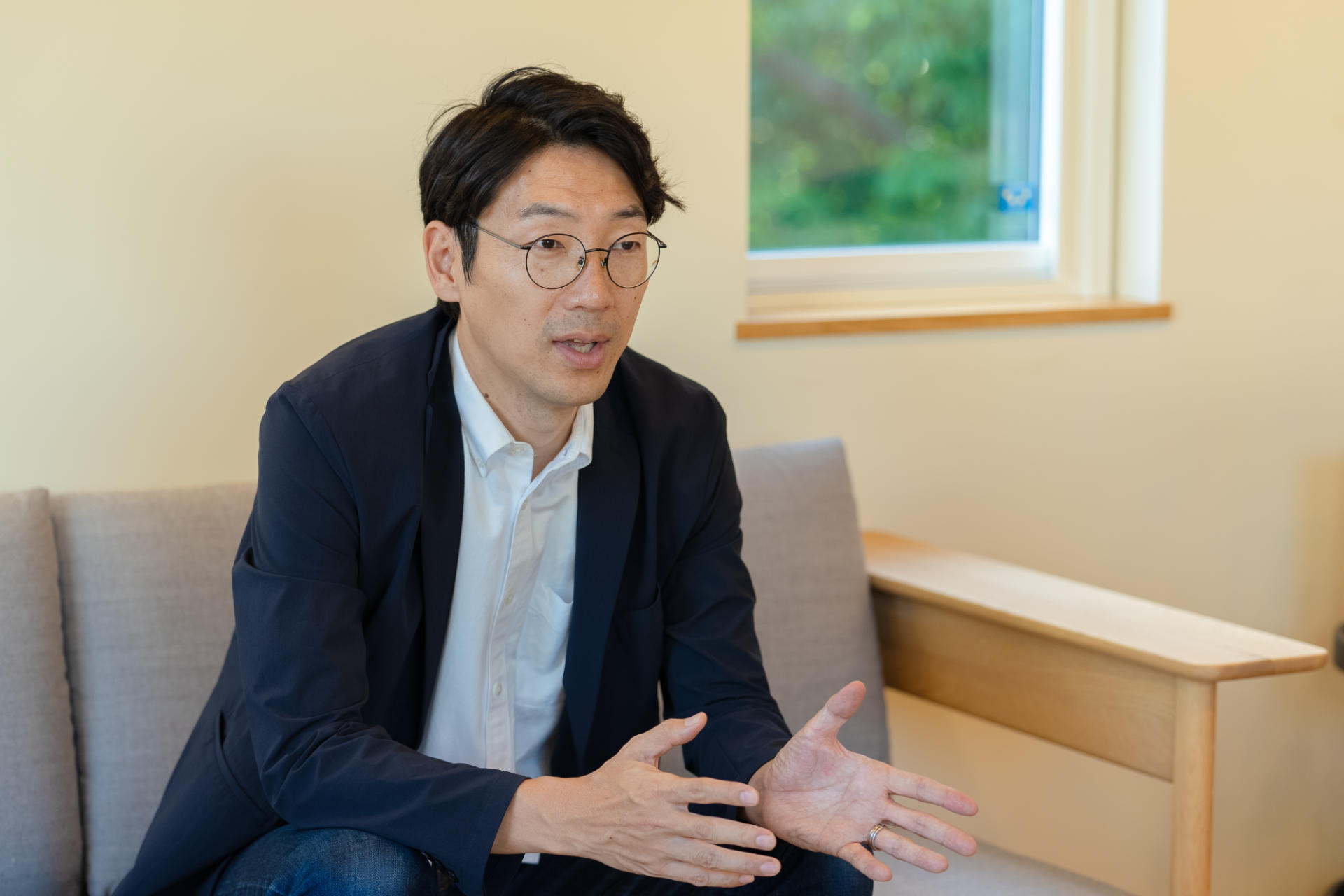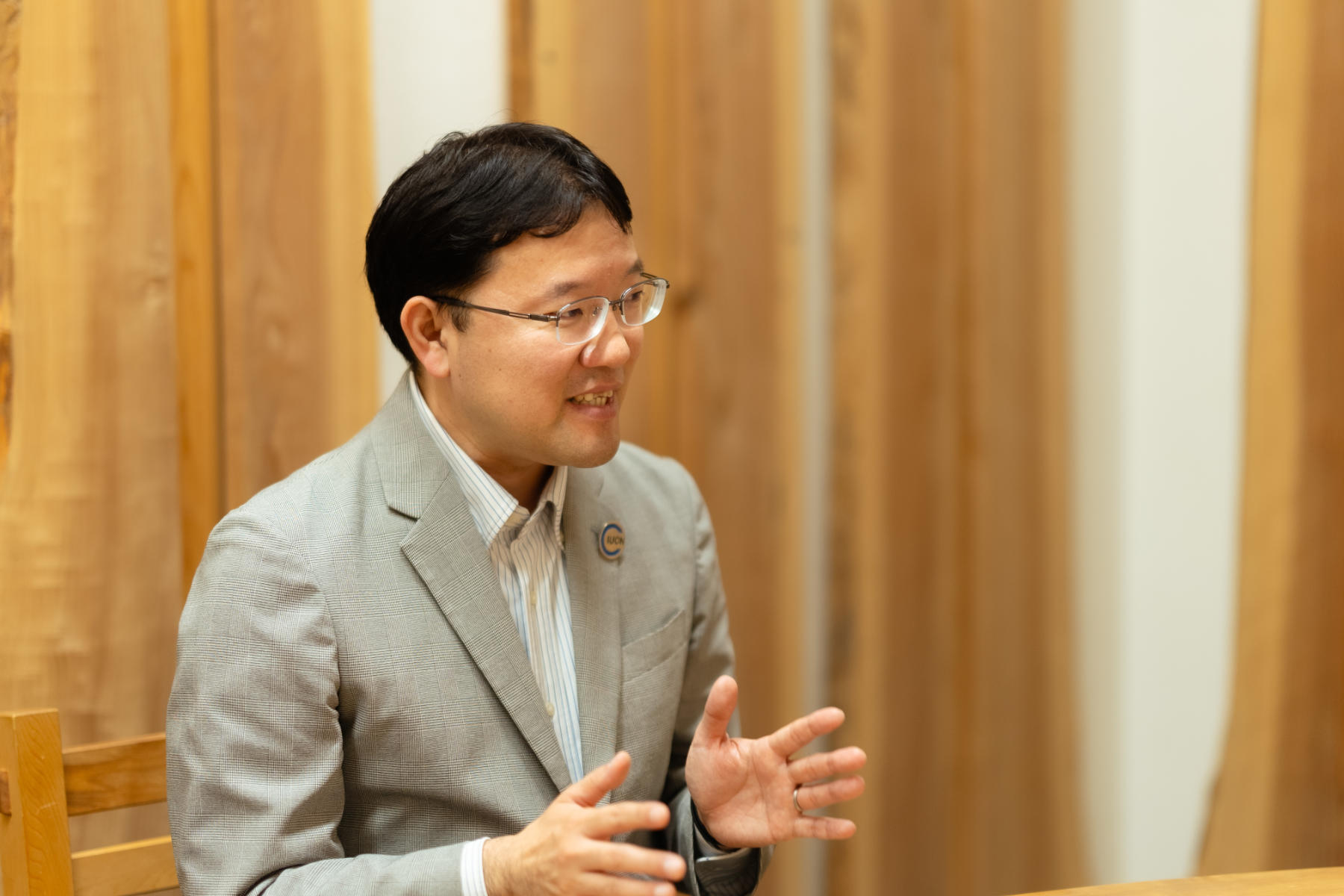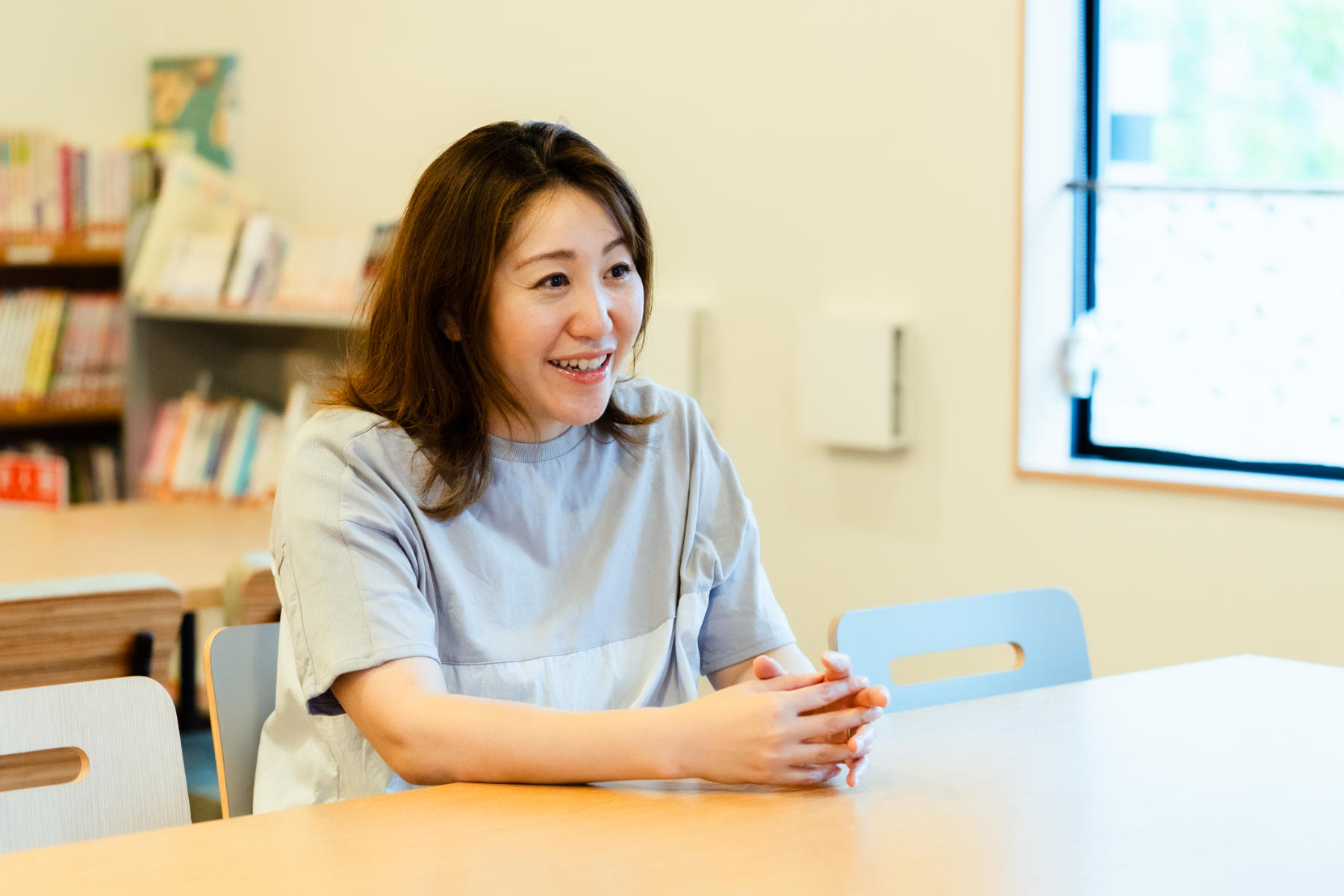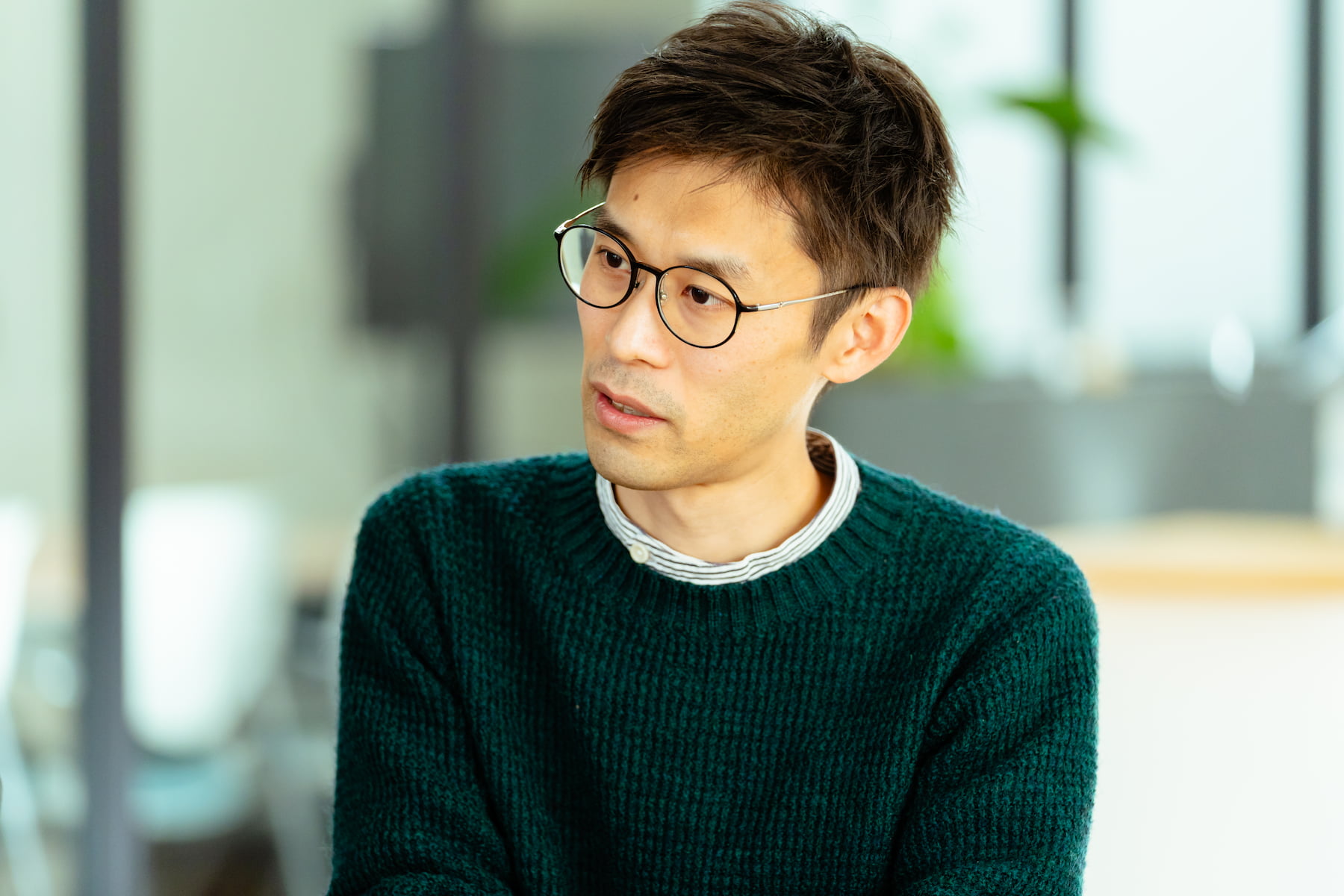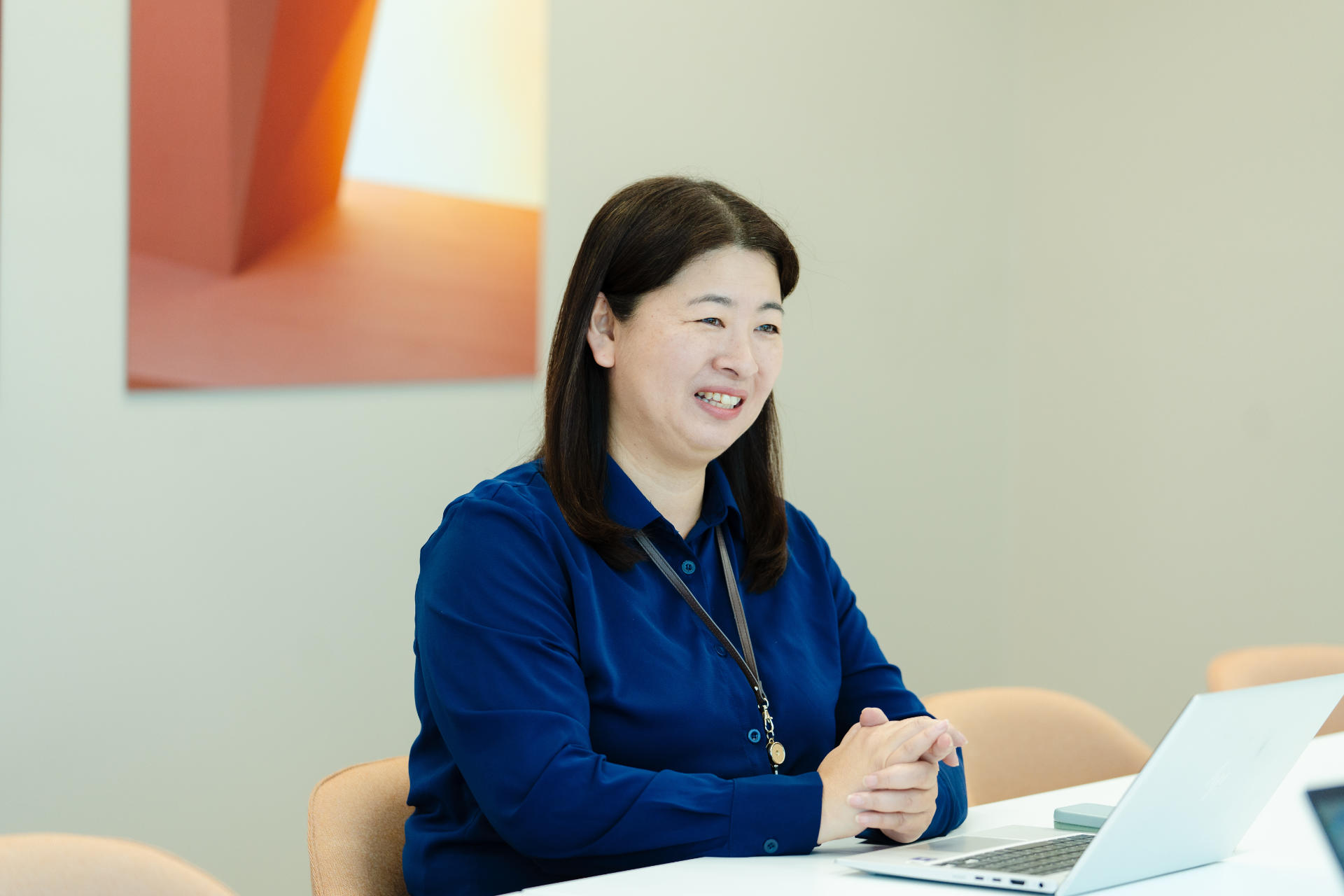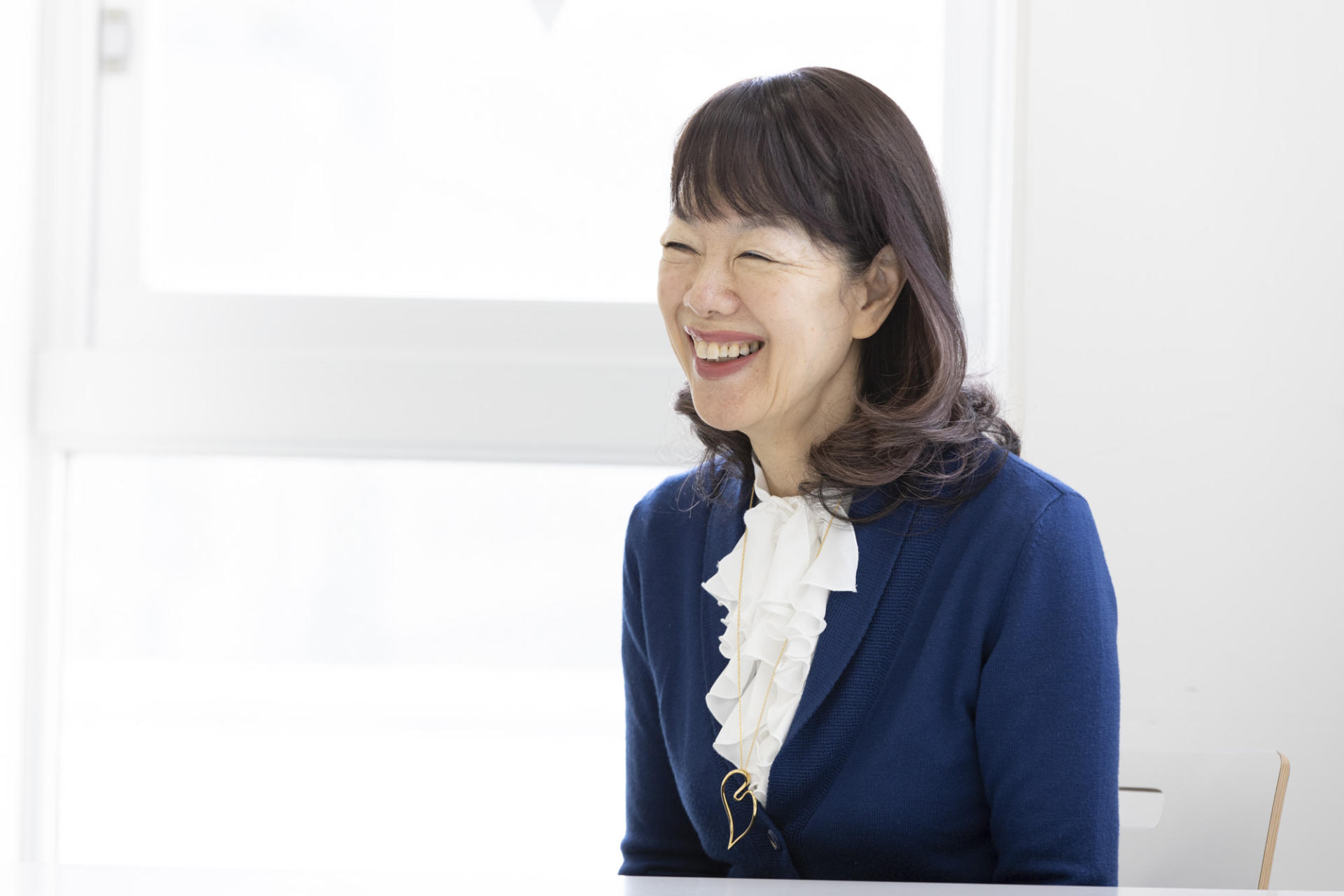CASE 35
One Planet Café Ltd.
(June 2017 - present)
Hitoshizuku is a valuable partner. We share a mutual understanding.
One Planet Café, founded by Satoko and Peo Ekberg, is a sustainability impact company developing positive businesses for sustainability. It runs lectures and study tours aimed at Japanese businesses, and produces a sustainable packaging material from banana waste - "banana paper." When Hitoshizuku was being set up (Nov 2017 – May 2018), One Planet Café offered guidance, and our companies have collaborated since then. In June 2023 we worked on an event for Jakob Trollbäck, the designer for the UN's 17 Global Goals (the SDGs: Sustainable Development Goals), and in July we jointly organized a sustainability study tour in Sweden for Japanese participants. During the tour, we sat down with Satoko and Peo for an interview.
A true ally in realizing sustainability.
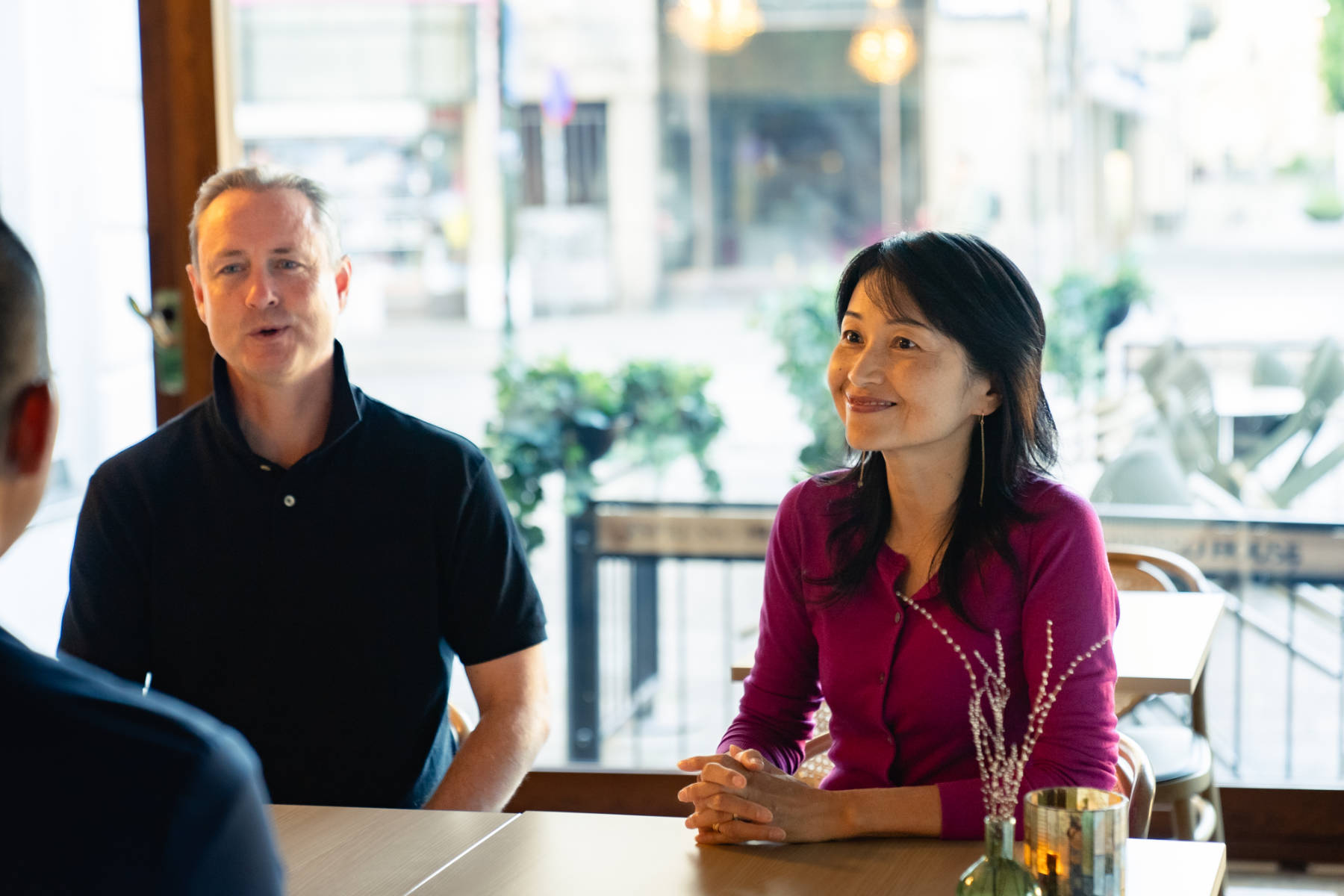
Satoko and Peo Ekberg, One Planet Café Ltd.
Hiroshi Kokubo, President and CEO of Hitoshizuku Inc. (Kokubo):
Today I’d like to look back at the work we’ve done together, the changes that have taken place, and our goals for the future. From the beginning, you mentioned challenges in reaching a wider audience, and we knew we could provide support—including sessions for the study tour and media coverage. When Jakob Trollbäck came to Japan, we co-planned the event. Hitoshizuku took charge of management and PR, and other contributions came from the companies Future Sessions and Gassaku. How do you feel about those projects?
Satoko Ekberg, CEO of One Planet Café (Satoko):
When working on lectures, tours and banana paper, there’s often not much time left for PR. It’s a constant issue, so we’re grateful for Hitoshizuku’s involvement. One of your strengths is your network; rather than simply publishing information, you’re able to make highly appropriate connections. You have a foundation to build on, and it led to impactful relationships.
Peo Ekberg, Director & Environmental Manager, One Planet Café (Peo):
We work with global sustainability, while your strengths are in Japan. Our sustainability activities are direct and pinpointed, whereas your work is broad, with a Japanese flexibility. Together, we have real strength.
Satoko:
You built bridges, by grasping our work and expressing it clearly. A shared understanding makes it easier to work together. Both Hitoshizuku and One Planet were founded with a focus on achieving sustainability.
Peo:
Working together feels very reassuring. We quickly understand each other!
I’d like Hitoshizuku to step into more of a leading role.
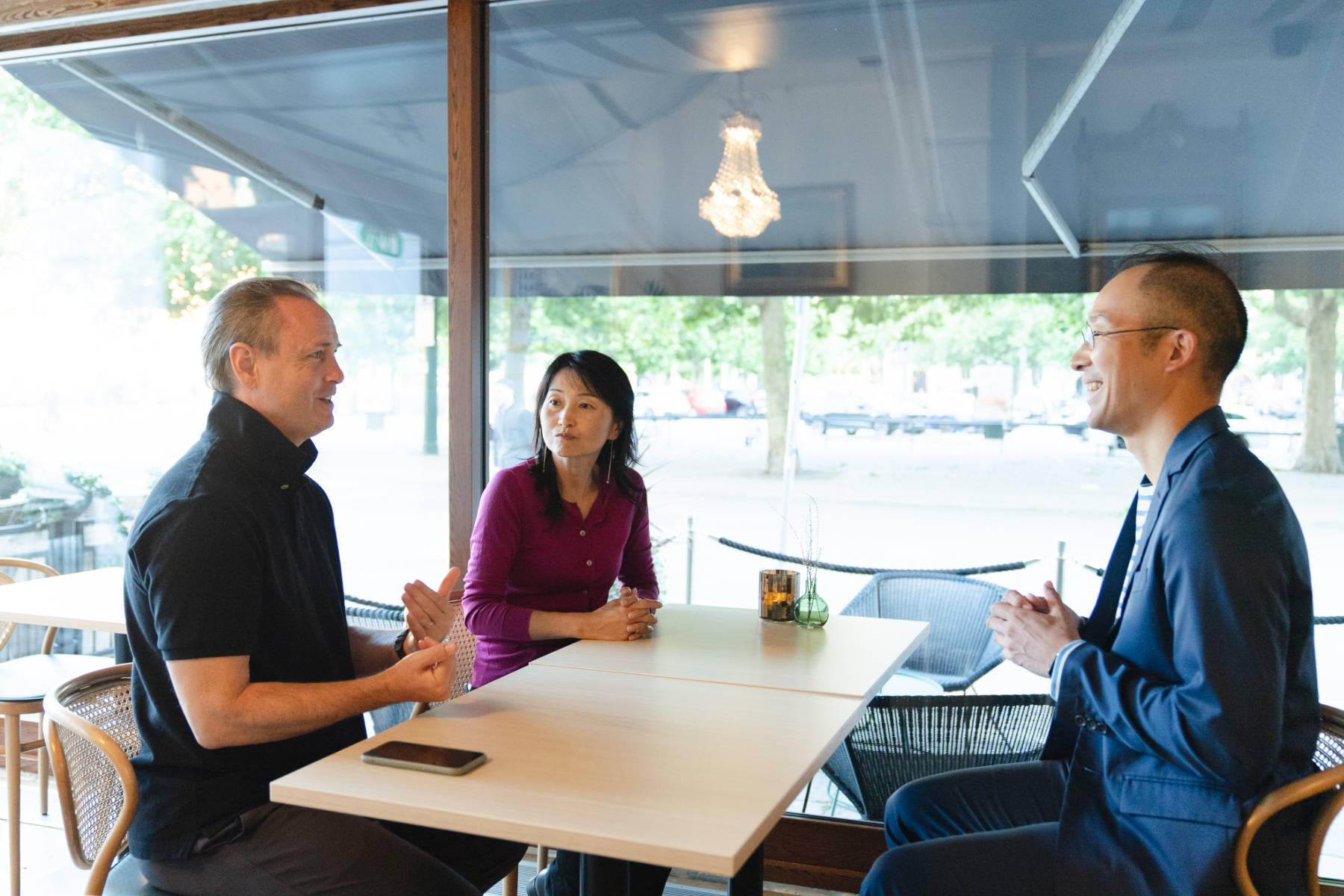
During the tour of Sweden in 2023, Kokubo and the Ekbergs visit a sustainability certified hotel.
Kokubo:
Over the course of our work together, have you noticed any changes in Hitoshizuku staff, including myself?
Satoko:
In 2018, we worked with Mami Kaneko on chart project®, an exhibition in Gotland, Sweden. And I was impressed by the changes I saw. She quickly learned how to conduct PR in Sweden, and began speaking openly and assertively. It reminded us that a shared understanding of culture is very important.
Peo:
The residents of Gotland were very interested in the chart project® exhibition, so I’m glad we did it. However, some visitors said something I agree with: It’s good to look at art and enjoy it, but will it change the world? Are we acting in time? How do we connect it to action? It’s a key question, and you can help us answer it.
Satoko:
In some areas, Japan is waiting for leadership. We understand and sense the critical situation the planet is in, so we need to show courage and say, “Here’s what we should do.” It might be controversial at times, but I think we dare to take the plunge.
Peo:
Trollbäck often says, “information is not communication.” In other words, it’s not enough to simply study the data that comes along. We need action. I believe that taking that step at Hitoshizuku will make a huge difference.
Kokubo:
Thank you. During the Sweden Study Tour, a design strategy company called BVD spoke about the risk of “green hushing”—where companies stay quiet about their green efforts in order to avoid criticism. We want to support and empower those taking action, but I realized that we haven’t yet communicated our policies or clarified our sustainability commitments.
Satoko:
We often speak about the 2:6:2 rule, which says that 20% of people work actively to change society, 60% of people want to change but don’t always know how, and 20% of people resist change no matter what. You support the 20% of people, working towards the majority, so I don’t think you need to change your position. But it’s important to share an understanding with clients that we’re working to affect that 60%.
Through networking, small actions can have a big impact.
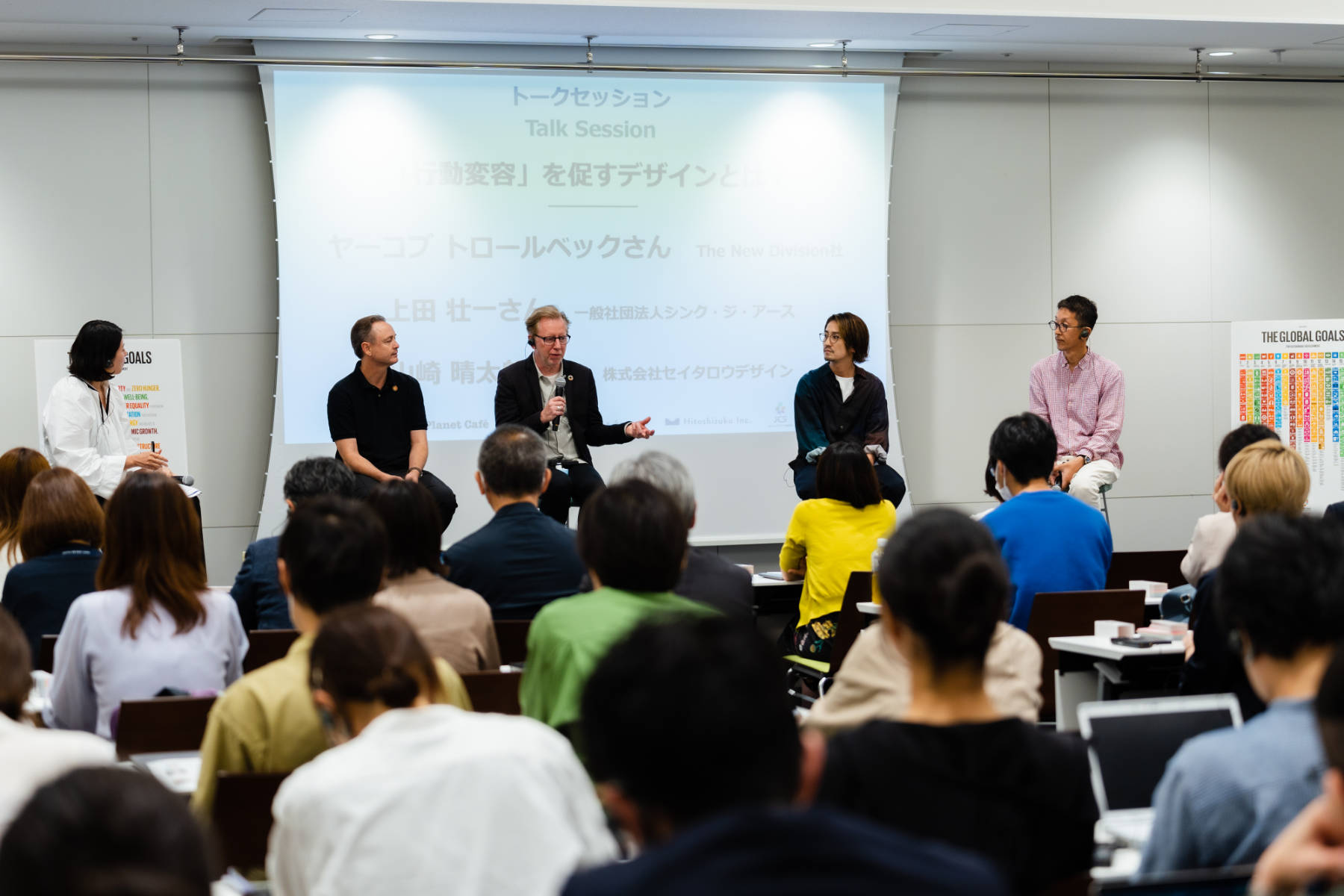
Jakob Trollbäck, at an event on May 29, 2023, put together by Hitoshizuku and One Planet Café
Kokubo:
What potential do you feel our collaboration has?
Peo:
We’re still working to involve more of that 60%. On one tour we explained the importance of insects, and we visited a field that was full of them. One participated surprisingly said, “I thought Sweden was a clean country, but it’s full of bugs.” We had totally failed to get our message across. On another tour, we spoke about the reduced usage of packaging in Sweden, and how that’s lowering CO2 emissions. But later, a participant said on social media that it was difficult to hand out the chocolates they bought in Sweden, because they weren’t individually wrapped. For some people, comprehension takes time. I feel we can learn from Hitoshizuku in order to reach a broader demographic.
Satoko:
Working together on the tour made me realize the significance of collaboration between companies. It was the first time we jointly organized a tour, and you were in charge of attracting participants. In the end, lots of people involved in sustainability took part, so I’m very excited to see what happens next. Normally, one or two participants decide they’ll take action after returning home. But this time I have a feeling that most will.
Kokubo:
Thank you very much. I’m also enjoying the response, so I’d like to do tours on an annual basis. Finally, what other expectations do you have for us, and what else would you like to collaborate on in the future?
Satoko:
Networking is incredibly important, so it would be good to work together on that.
Peo:
Especially within Japan.
Satoko:
I want to make substantial networking progress with participants of this tour, and previous tours. Staying connected with as many participants as possible will allow us to keep up to date on their actions, and offer encouragement. By sharing our mistakes and successes, we can move on to the next step.
Peo:
When the participants return to Japan, it’s easy to return to a Japanese way of thinking. It’s difficult to make an effort when you’re disconnected from a group with shared values. I’d love for participants to stay in touch, and exchange information about putting their knowledge to use.
Satoko:
The Swedish are good at networking. Individually, their power is limited, but together, they start a movement that impacts society. In Japan, there are organizations doing good work, but they tend to be isolated. So how can we work together to achieve our goals? It’s important for us to communicate that information, and to support each other.
Kokubo:
Thank you. Hitoshizuku and One Planet Café are an example of a small but influential network, I think. I want to continue working together, to expand that network, and grow our activities in Japan. Thank you for your continued support.
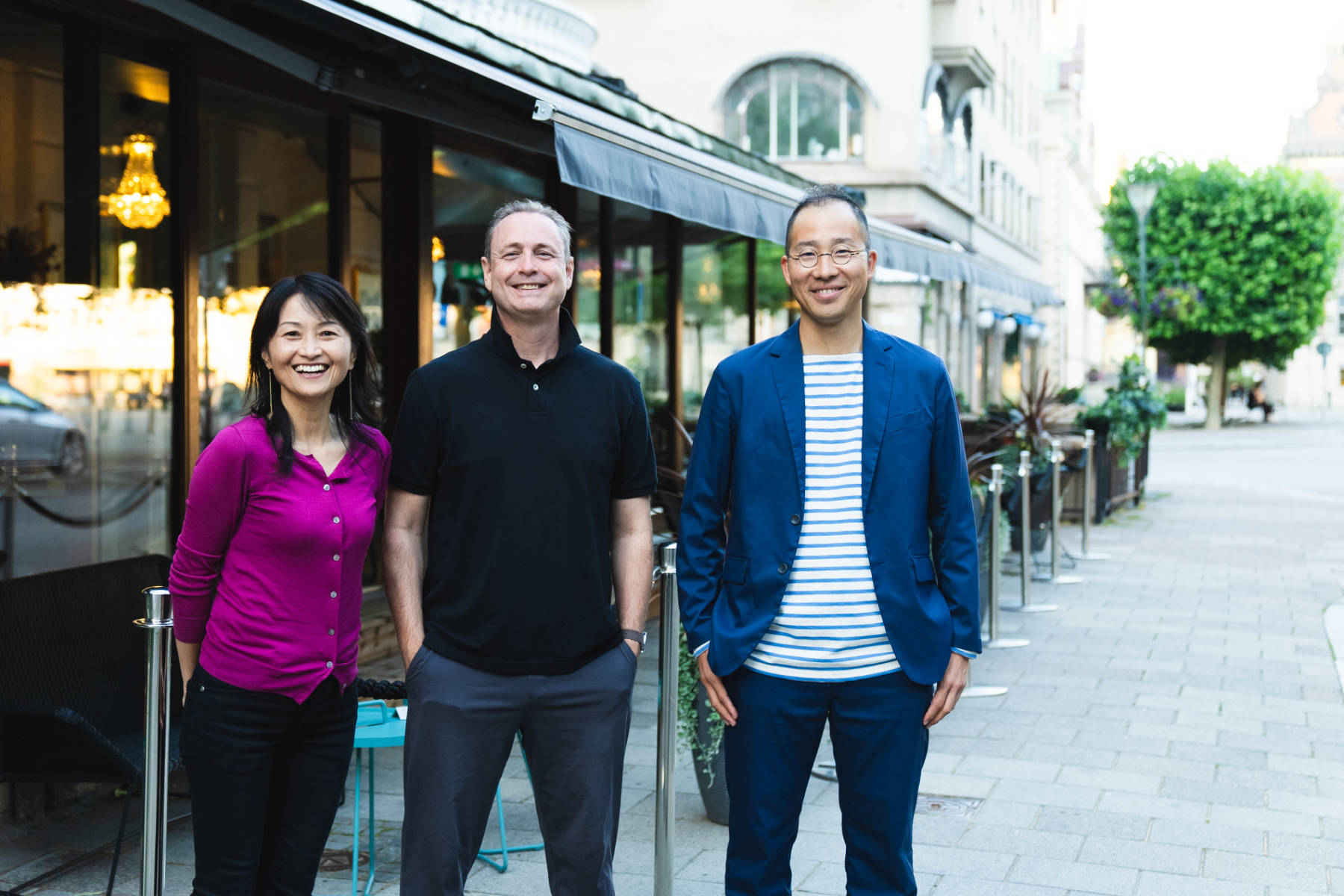
Photography: Hiroyuki Horigome
Editing: Takako Chiba
Translation Editing: Satomi Furukawa
RECENT WORKS
| Name | Hitoshizuku Inc. |
| Address | 33 Nihonodori Naka-ku Yokohama Kanagawa 231-0021 JAPAN |
| Branch | Hamacho Odawara Kanagawa 250-0004 JAPAN |
| Phone | 81 045 900 8611 |
| info@hitoshizuku.co.jp |
| President | Hiroshi Kokubo |
| Established | March 2016 |
| Capital | 3,000,000yen |
| Business | Advertising & Public Relations Agency Planning & Produciton of Social Good Projects |
| Lawyer | Junna Tei / Yokohama First Law Office |
| Tax Advisor | Satoru Motokoide / Uniques Money Advisory |
| Labor and Social Security Attorney Office Work Innovation | |

